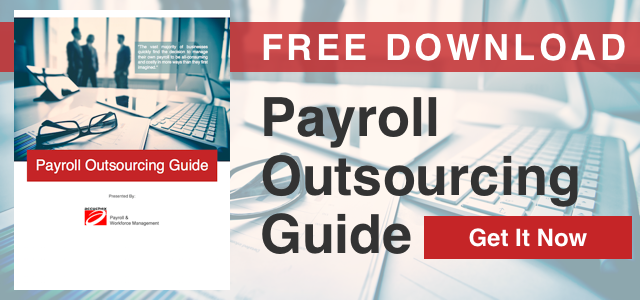Payroll presents a number of compliance challenges for HR and payroll professionals. One of the best ways to maintain compliance, however, is with a payroll audit.

This post was originally published on December 2, 2014 and updated in May 2020.
Payroll Audits Should be a Regular Function of Your Payroll Process
"Conducting periodic audits at least once or twice per year helps you maintain compliance and strengthen your company’s financial controls. The audit enables you to verify that payroll records are correct and to spot and fix issues that could have led to an external audit. A qualified member of your staff or a third-party auditor can perform the audit."
It’s hard to do an audit of even a small business in less than 100 hours. At $100 per hour (which is probably too low an estimate), the audit fee would be $10,000. Instead of a full-fledged audit, which they can’t realistically afford, many smaller businesses have a CPA come in regularly to look over their accounting methods and give advice on their financial reporting.
Why You Need to Conduct Payroll Audits
1. Confirm that your payroll information is accurate and up-to-date. One of the most common errors that can occur with the payroll process is when an employee is paid at a higher or lower-than-normal rate of pay. Regular internal audits allow you to verify the rate of pay on each employee's pay distribution against the rate of pay in the payroll ledger. If applicable, you can use the audit process to verify the pay rates against each employee's employment contract or most recent review.2. Ensure that proper payments and employee contributions are being made.
An internal payroll audit will verify that your hourly employees have recorded the actual hours that they were paid for the time period being audited. You can verify time cards, your own payroll reporting system, and the paychecks that were given. In addition, your audit will allow you to confirm that sick time and vacation pay was accurate, and that the employees receiving it were eligible for that pay.
3. Establish ongoing compliance for accounting and record-keeping.
While most businesses maintain accurate records, as required by law, errors in accounting and inefficiencies with record-keeping can and do occur. Conducting an audit provides an opportunity for reviewing and correcting or improving your compliance practices. With an audit you can review your payroll ledger accounts and verify each check against the transactions listed in the ledger. This would include the paychecks, withholding, insurance and taxes.
4. Review and reconcile your banking activity.
Whether you are still cutting and distributing paper paychecks, or making use of a paperless payroll process, regularly reviewing and reconciling your company's banking activity is crucial. While this may be done in a separate process strictly for accounting purposes, it can also be included as a critical component of your internal payroll audit process. You should confirm that all canceled checks are accurate and match exactly what was issued to each employee. In addition, you will want to reconcile your bank statements to match the activity in the bank account against the payments and transactions in the payroll ledgers.
5. Verify current employment status of employees.
In larger companies, an employee that is no longer employed by the company can still be receiving paychecks. More often, the employment status may have changed if an employee is on disability or on some form of employment leave. Though not likely, it can happen if the proper procedures were not followed, or overlooked.
Considering a third-party for your internal payroll audit
For a number of reasons, many businesses opt for using a third-party to conduct their internal audits. One reason is that using a third party can ensure that the results audit will be objective. Another is that many businesses find that comprehensive audits place a huge demand on resources that they would rather not give up for that period of time.
Regardless of whether your company decides to hire a firm to conduct a payroll audit, or if you choose to perform one yourselves, scheduling regular, comprehensive payroll audits is essential. Compliance, accuracy, and efficiency can be improved and optimized with regular audits.
If you are considering outsourcing some or all of your payroll processes, give us a call. Let Accuchex help you in managing your HR needs, payroll processes, and staying on top of compliance demands. Get your Free Download: Payroll Outsourcing Guide to help you make an informed decision or call Accuchex Payroll Management Services at 877-422-2824.




